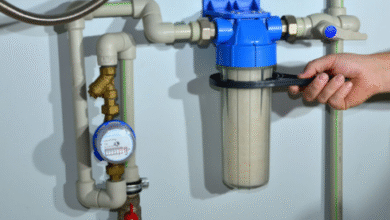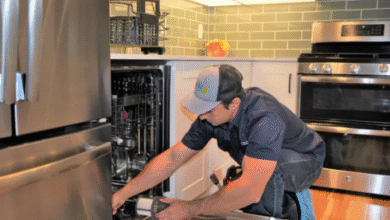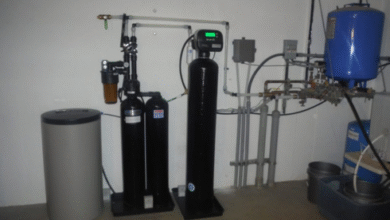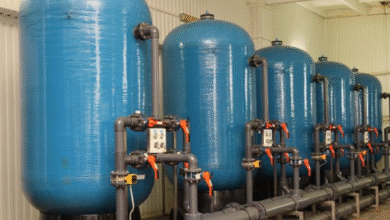Finding Clarity in the Debate: Salt-Free vs Traditional Water Softeners
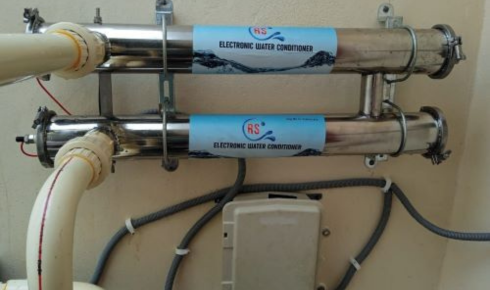
When you start looking into ways to deal with hard water, it’s like opening a door to a surprisingly big debate. Everyone has an opinion—some swear by the tried-and-true salt-based softeners, while others argue that new salt-free approaches are the smarter, greener choice. If you’ve been scratching your head over what’s best for your home, don’t worry. You’re not alone. I’ve been down the same rabbit hole, comparing features, reading reviews, and even chatting with neighbors who had very different experiences.
Let’s walk through this in a way that feels less like reading a technical manual and more like getting advice from a friend who’s been there.
The Basics: Why We Even Bother With Softeners
Hard water is one of those silent frustrations. You don’t think much about it until you notice cloudy glassware, a crusty white ring on your sink, or the way your skin feels tight after a shower. Over time, it gets more serious: clogged pipes, appliances that die earlier than they should, and way too much money spent on soaps and detergents that just don’t lather well.
That’s where water softeners step in—systems designed to tackle the high levels of calcium and magnesium responsible for all those issues.
Enter Salt-Free Solutions
The term salt-free water systems pops up a lot these days, often framed as a healthier and more eco-friendly alternative. Unlike traditional softeners that use ion exchange with salt, these systems rely on a different process—usually some form of template-assisted crystallization (TAC). Instead of actually removing minerals, they alter the structure of calcium and magnesium so they won’t stick to surfaces. It’s less about stripping your water clean and more about neutralizing the bad behavior of those minerals.
Many homeowners like the idea because it avoids lugging 40-pound salt bags into the house every month and reduces sodium discharge into wastewater. It also means your water keeps its natural minerals, which some argue is a good thing.
The Traditional Choice: Salt-Based Softeners
Of course, there’s a reason salt-based systems have been around for decades. They work. They don’t just prevent scale buildup; they actually remove the minerals, leaving behind that silky-smooth water people love. Dishes sparkle, soap lathers like it should, and your water heater breathes a sigh of relief.
But they’re not without drawbacks. You’ve got the ongoing maintenance, the salt refills, and the concern over sodium levels if you’re on a restricted diet. Not to mention the environmental question—wastewater from these systems can be an issue in certain regions.
Living With a Salt-Free Softener
A friend of mine installed a salt free water softener last year, and she’s been pretty happy. She mentioned the biggest difference wasn’t necessarily in the “feel” of the water, but in how much easier it was to clean her shower tiles. Less scrubbing, fewer harsh cleaners. She also liked knowing that her household wasn’t dumping extra salt into the local water system.
On the flip side, she admitted it didn’t give that “luxury hotel” feel some people expect. If you’re hoping for the sensation of silky-soft water on your skin, you may not get that with a salt-free option.
Sorting Through the Noise
The internet is full of strong opinions on this. Some people insist salt-free systems are a scam, while others say salt-based ones are outdated and wasteful. The truth? It’s not that black and white. It’s more about your personal needs, your priorities, and your water’s hardness level.
For example, if you’re living in an area with extremely hard water, a traditional system might be more effective in giving you noticeable results. If your water is only moderately hard and you’re focused on eco-friendliness, salt-free might be plenty.
Cost and Maintenance Considerations
Let’s talk money. Salt-based systems usually have a higher upfront cost plus ongoing salt purchases. The maintenance is straightforward but continuous—you can’t skip refills. Salt-free systems often come at a similar or slightly higher initial price but have almost no ongoing expenses. Once installed, they’re low-maintenance, which is appealing if you’d rather “set it and forget it.”
When you look at it over five to ten years, the costs can balance out. The real savings often come from fewer appliance repairs and lower energy bills because your water heater doesn’t have to work so hard.
The Science vs. the Feel
Here’s the interesting part: the science behind these systems is different, and so is the way people perceive the results. With salt-based, you feel the difference—soft, slippery water. With salt-free, it’s more subtle. You notice it in how your appliances last longer or how your shower doors don’t get that thick chalky buildup.
That difference can confuse people into thinking salt-free isn’t “working,” but it’s really about how you define success.
The Ongoing Debate
This brings us to the big comparison: salt vs salt free water softener. It’s kind of like the debate between manual and automatic cars. Some people will always swear by the control and familiarity of the old way, while others embrace the convenience of newer technology. Neither side is entirely wrong—it’s just about what matters more to you.
Do you want water that feels soft to the touch? Salt-based might be your winner. Do you want something low-maintenance and environmentally conscious? Salt-free could be your match.
So, What’s the Verdict?
If you were hoping for a one-size-fits-all answer, I hate to disappoint you. The reality is there isn’t one. Every home is different, every family’s priorities are unique, and even the local regulations about water treatment can play a role in your decision.
What I can say is this: take a step back from the hype. Think about your daily experience with water. What frustrates you the most—scale buildup, the way your skin feels, the hassle of maintenance, or the environmental footprint? Your answer to that will likely point you toward the right system.
Final Thoughts
Choosing between salt and salt-free systems doesn’t have to feel overwhelming. At the end of the day, it’s not about chasing perfection—it’s about finding a solution that improves your life in small but meaningful ways. For some, that’s sparkling dishes and softer laundry. For others, it’s peace of mind knowing they’re using a greener system with less fuss.
Water may be just a part of the background in our lives, but when it’s hard, you notice. And when it’s softened—by whichever method works best for you—you realize how much smoother everyday life can be.
